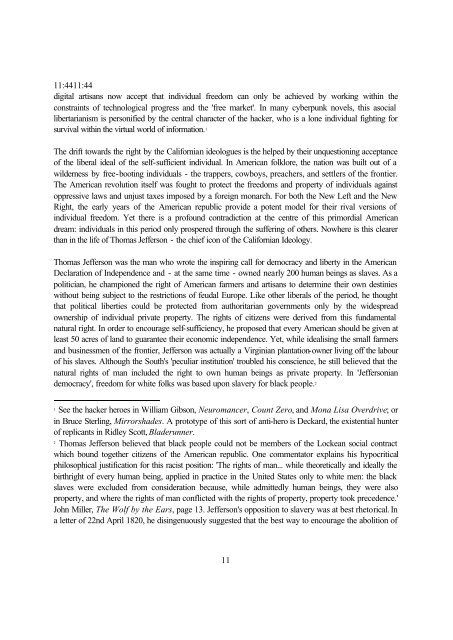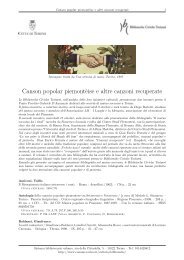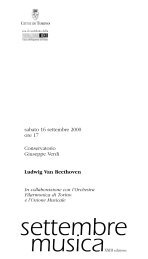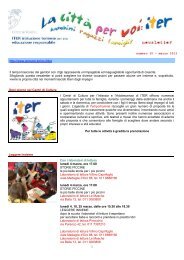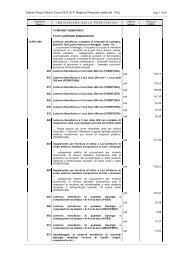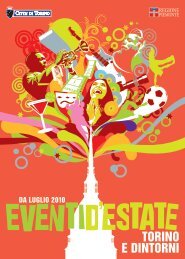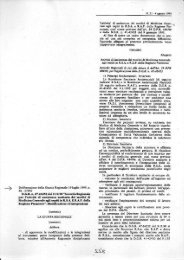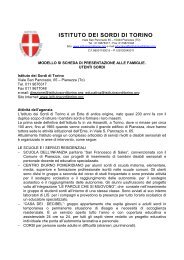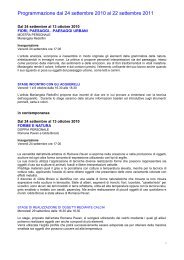THE CALIFORNIAN IDEOLOGY
THE CALIFORNIAN IDEOLOGY
THE CALIFORNIAN IDEOLOGY
You also want an ePaper? Increase the reach of your titles
YUMPU automatically turns print PDFs into web optimized ePapers that Google loves.
11:4411:44<br />
digital artisans now accept that individual freedom can only be achieved by working within the<br />
constraints of technological progress and the 'free market'. In many cyberpunk novels, this asocial<br />
libertarianism is personified by the central character of the hacker, who is a lone individual fighting for<br />
survival within the virtual world of information. 1<br />
The drift towards the right by the Californian ideologues is the helped by their unquestioning acceptance<br />
of the liberal ideal of the self-sufficient individual. In American folklore, the nation was built out of a<br />
wilderness by free-booting individuals - the trappers, cowboys, preachers, and settlers of the frontier.<br />
The American revolution itself was fought to protect the freedoms and property of individuals against<br />
oppressive laws and unjust taxes imposed by a foreign monarch. For both the New Left and the New<br />
Right, the early years of the American republic provide a potent model for their rival versions of<br />
individual freedom. Yet there is a profound contradiction at the centre of this primordial American<br />
dream: individuals in this period only prospered through the suffering of others. Nowhere is this clearer<br />
than in the life of Thomas Jefferson - the chief icon of the Californian Ideology.<br />
Thomas Jefferson was the man who wrote the inspiring call for democracy and liberty in the American<br />
Declaration of Independence and - at the same time - owned nearly 200 human beings as slaves. As a<br />
politician, he championed the right of American farmers and artisans to determine their own destinies<br />
without being subject to the restrictions of feudal Europe. Like other liberals of the period, he thought<br />
that political liberties could be protected from authoritarian governments only by the widespread<br />
ownership of individual private property. The rights of citizens were derived from this fundamental<br />
natural right. In order to encourage self-sufficiency, he proposed that every American should be given at<br />
least 50 acres of land to guarantee their economic independence. Yet, while idealising the small farmers<br />
and businessmen of the frontier, Jefferson was actually a Virginian plantation-owner living off the labour<br />
of his slaves. Although the South's 'peculiar institution' troubled his conscience, he still believed that the<br />
natural rights of man included the right to own human beings as private property. In 'Jeffersonian<br />
democracy', freedom for white folks was based upon slavery for black people. 2<br />
1<br />
See the hacker heroes in William Gibson, Neuromancer, Count Zero, and Mona Lisa Overdrive; or<br />
in Bruce Sterling, Mirrorshades. A prototype of this sort of anti-hero is Deckard, the existential hunter<br />
of replicants in Ridley Scott, Bladerunner.<br />
2<br />
Thomas Jefferson believed that black people could not be members of the Lockean social contract<br />
which bound together citizens of the American republic. One commentator explains his hypocritical<br />
philosophical justification for this racist position: 'The rights of man... while theoretically and ideally the<br />
birthright of every human being, applied in practice in the United States only to white men: the black<br />
slaves were excluded from consideration because, while admittedly human beings, they were also<br />
property, and where the rights of man conflicted with the rights of property, property took precedence.'<br />
John Miller, The Wolf by the Ears, page 13. Jefferson's opposition to slavery was at best rhetorical. In<br />
a letter of 22nd April 1820, he disingenuously suggested that the best way to encourage the abolition of<br />
11


